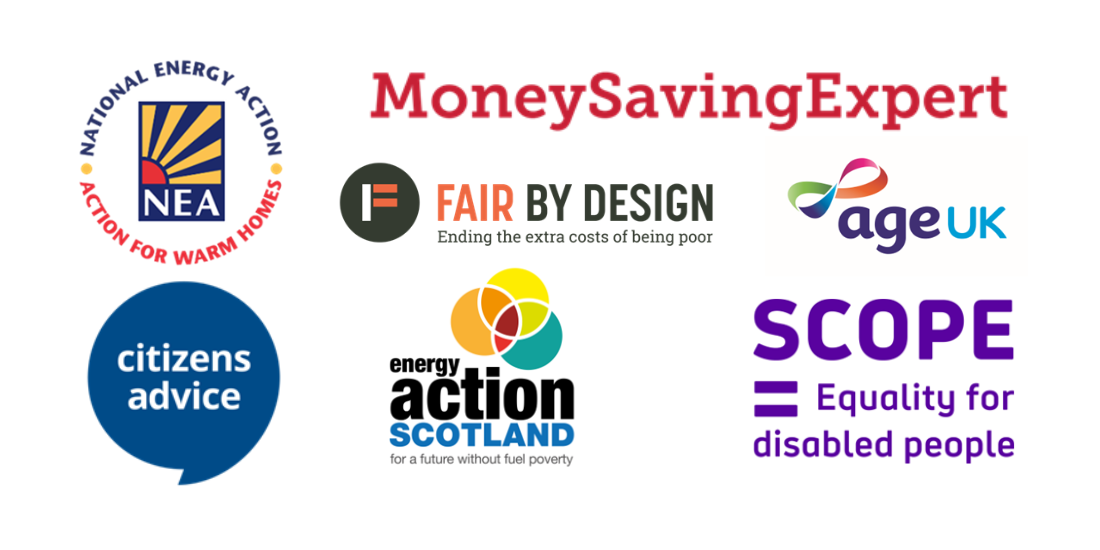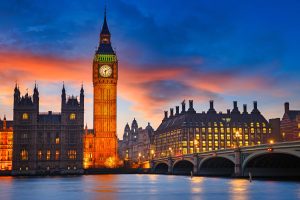Contact: Anna Cook, Head of Communications (anna.cook@nea.org.uk)
Mobile: 07884 371913
Coalition of over 140 organisations and MPs call for consultation on a social tariff for energy
- Last winter energy bills were the highest in living memory, and from this Sunday, 1 October, they are expected to be 13% higher.
- 34% of British adults expect to struggle to afford their heating bills this winter without government support, according to new polling by fuel poverty charity National Energy Action (NEA).
- The government has repeatedly committed to consulting on a social tariff without following through.
- The letter, led by National Energy Action, Money Saving Expert, Citizens Advice, Fair by Design, Age UK, Scope and Energy Action Scotland, has been signed by over 140 charities, organisations and MPs.
As Ofgem’s price cap changes take effect this Sunday (1 October), a coalition of over 140 charities, organisations and MPs is calling on the government to take action to support vulnerable households with their energy bills, in an open letter that has today (29 September) been sent to the Prime Minister.
Typical energy bills will be £1,923 from 1 October — over 50% higher than pre-crisis levels.[1] With the government yet to announce any winter financial support, households are facing even higher costs — 13% more on average—than they experienced over the winter months last year.[2]
As the temperature falls, more households will face impossibly high energy bills, with many under-heating their homes to a dangerous extent. According to new polling carried out for National Energy Action by YouGov, a third of British adults are expecting to struggle to afford their heating bills this winter if the government doesn’t offer financial help with energy bills.[3]
Social tariff solution
The government has previously committed to consult on future approaches to consumer protections including a social tariff. This was promised in the Autumn Statement 2022, with the commitment repeated multiple times since then by the Prime Minister and others.[4] But with the next winter looming, no consultation has appeared. The signatories to today’s letter are therefore calling on the government to make good on its commitment to consult on a social tariff so that this urgent conversation can move forward.
As the letter also notes, it is unlikely that a social tariff could be implemented in time to provide the immediate support that will be required this winter. Signatories are therefore also urging the government to provide targeted support in the short-term.
High prices here to stay
Looking ahead, a more lasting policy solution will be needed over the coming years of the energy transition. A public consultation on proposals for a social tariff would provide a vital first step towards this.
Elevated energy prices have already had a huge impact on households around the country. Total household energy debt currently stands at £2.25 billion, more than 70% up on three years earlier (having crossed £2 billion for the first time on record in 2022).[5] National Energy Action figures show that 6.3 million households will be in fuel poverty from Sunday, an increase of over 2 million since October 2021.
These crisis conditions are not expected to pass in the near future. Analysts forecast that with disrupted gas supplies and rising electricity demand, energy prices are “unlikely to return to pre-2021 ‘normality’ this decade”.[6]
Martin Lewis, founder of MoneySavingExpert.com said:
“A typical house now pays a once unthinkable, still unaffordable, £2,000 a year for energy – worse, this winter people won’t get the £400 support they did last. The energy market is broken – the limited competition there is hardly impacts what people pay. Even when there was competition, it failed many elderly or vulnerable people unable to take advantage of deals. That’s why I’ve long supported a social tariff. It’s why I was excited when the government said it’d bring one in. Now I’m despairing at the deafening silence of inaction. This isn’t trivial, it’s a core wellbeing issue for millions. The government needs to pull its bloody finger out.”
Ben Lake MP, chair of the All-Party Parliamentary Group on Fuel Poverty & Energy Efficiency, said:
“The government cannot delay the introduction of a social tariff any longer. With energy debt soaring by 70% over the last three years, it’s vital that low-income and vulnerable households are protected. A social tariff would offer those in most need long-term security and provide much-needed relief from bills that are over 50% higher than pre-crisis. It’s time for the government to consult on these issues so a sustainable solution can be put in place.”
Adam Scorer, CEO at National Energy Action, said:
“With a third of households expecting to struggle to heat their homes this winter, the cost of energy will remain simply unaffordable for millions. We have to face reality. Even without a price rise, which now looks likely in January, the crisis is deepening, and it demands a proper response from government now. That means urgent targeted financial support this winter and for government to get moving on its commitments to consult on and deliver a longer-term social tariff for energy.”
Gillian Cooper, Head of Energy Policy at Citizens Advice, said:
“Without the introduction of more long-term targeted support, we’ll see the same crisis repeat every winter. Struggling households unable to pay their energy bills, people unable to top up their prepayment meter, record numbers coming to us for crisis support. A social tariff would protect millions of people from excessive energy bills and provide crucial certainty for people who need it most in a new era of high energy costs. The government must deliver on its commitment to introduce better targeted support by April 2024.”
Caroline Abrahams CBE, Charity Director of Age UK, said:
“At Age UK we believe the introduction of a comprehensive, targeted energy social tariff is the best way to deliver support to those who need it. That’s why we are calling on the government to keep their promise and launch a consultation. Older people struggling to heat their homes have waited patiently only to learn that in fact there would be no social tariff consultation before the autumn. With estimates showing that high energy prices are here to stay, at least for the next two winters, this targeted support package cannot come soon enough for our older population.”
Louise Rubin, Head of Policy at disability equality charity Scope, said:
“Life costs a lot more for disabled people. When you rely on energy for equipment to help you breathe or get out of bed, cutting back on energy is not an option. Last winter pushed disabled people and their families to the brink. Now disabled people who’ve cut back everything they can are facing the terrifying prospect of even higher energy bills.
“We’re hearing from people who have been forced to go without food for days. One person told us they’d been surviving on food donations from a neighbour. We need emergency support now, and a social energy tariff to end sky-high bills for disabled people. The government must keep its promise.”
Maria Booker, Head of Policy at Fair By Design, said:
“The government has not delivered on its promise to consult in time to have a social tariff in place for April 2024 when the Energy Price Guarantee comes to an end. This is very disappointing. Today Fair By Design, alongside industry and over 140 consumer organisations is once again calling on the Treasury to make good on its commitment to support those who are struggling the most. Energy bills are predicted to remain high until the end of the decade. The government’s ‘wait and see’ approach is simply ducking the issue. The government urgently needs to consult on targeted support to ensure that the poorest households can afford to put hot food on the table and keep warm. This is a minimal ask to live with dignity in 2023.”
Frazer Scott, CEO of Energy Action Scotland, said:
“Energy Action Scotland has long called for the introduction of a social tariff to provide more affordable energy which is essential for health and wellbeing. That we are still having to argue a case for a social tariff as we approach autumn is a disgrace. People need to know that essential and basic levels of heat and power are within reach.
“The UK government must work with regulators and energy suppliers to create a long-term, fair and affordable social tariff. Millions of households are approaching this winter with significant amounts of debt. This means that while gas and electricity prices remain at historically high levels, energy bills are simply unaffordable for those on the lowest incomes, those with essential medical needs, the disabled and older people. It is exacerbated by poor-quality housing, that is cold and damp. This is fast becoming a humanitarian crisis unfolding in plain sight of our politicians and policymakers.”
If this goes online, please link to www.nea.org.uk/social-tariff-letter.
ENDS
NOTES TO EDITORS
National Energy Action (NEA), is the national fuel poverty charity, working across England, Wales and Northern Ireland, to improve the lives of people in fuel poverty. We directly support people with energy and income maximisation advice, and we advocate on issues such as the current energy crisis and the need to improve the energy efficiency of our homes. See: www.nea.org.uk/.
The letter was led by:
AgeUK: @age_uk
Citizens Advice: @citizensadvice
Energy Action Scotland: @eas_scotland
Fair by Design: @fairbydesign
Money Saving Expert: @moneysavingexp
National Energy Action: @NEA_UKCharity
Scope: @scope
[1] The default tariff cap of £1,923 for October 1 to December 31 2023 was announced by Ofgem in August: https://www.ofgem.gov.uk/publications/energy-price-cap-default-tariff-1-october-31-december-2023. From October 2021 to March 2022, the equivalent cap was £1,277, and had been slightly lower than this for some years previously. (Meanwhile actual average annual bills were lower still, since unlike today, at that point most tariffs were slightly lower than the cap level.)
[2] From October 2022 to March 2023, the government’s Energy Price Guarantee set average bills at £2,500 per year, or £208 per month. But in addition, each household received £67 per month from the Energy Bill Support Scheme, bringing the average monthly cost of energy to £141. This year, unless further support is announced, average costs in the period from October to December 2023 will come to £160.
[3] Online survey conducted by YouGov on behalf of NEA between 15 and 17 September 2023. Sample of 2,014 adults living in Great Britain. Weighted to be nationally representative of this group.
[4] Autumn Statement 2022: “The government will work with consumer groups and industry to consider the best approach to consumer protection from April 2024, including options such as social tariffs, as part of wider retail market reforms.” Rishi Sunak, 18 January 2023: “As the Chancellor has already announced, we are also consulting on the best thing to do going forward, including options, as the hon. Gentleman has mentioned, such as a social tariff, as part of our wider reforms of the retail energy market.” Grant Shapps (then Secretary of State for Energy Security and Net Zero), 18 April 2023: “We do think that things like a social tariff could be very helpful, and the Chancellor has undertaken to look at that as well.”
[5] Ofgem debt data: https://www.ofgem.gov.uk/publications/debt-and-arrears-indicators.
[6] Cornwall Insight: https://www.cornwall-insight.com/press/european-gas-shortages-to-keep-wholesale-prices-high-this-winter-and-next/.















